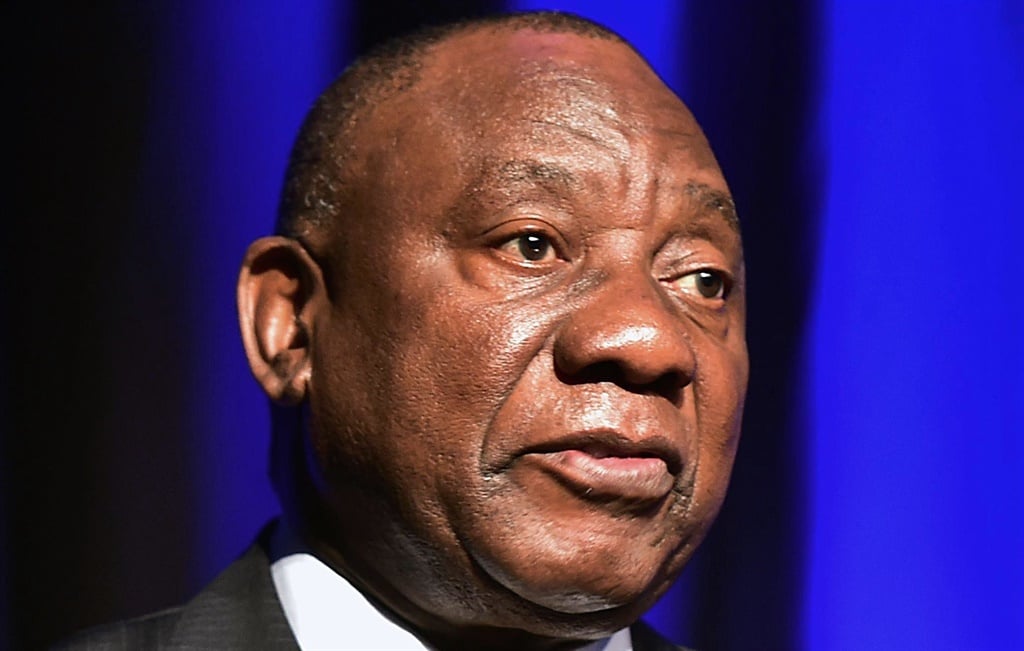
- The EFF has approached the High Court to have the CR17 bank statements unsealed.
- Its core argument is that the statements should be open to public scrutiny given the position that Ramaphosa assumed in the country as a result of winning the ANC elective conference in 2017.
- Meanwhile, those opposing the application argue that the donors have a right to privacy.
The principle of open justice does not apply to the CR17 bank statements, as the documents were never before in an open court.
This was a central argument in opposing the EFF’s application to have the bank statements related to President Cyril Ramaphosa’s campaign for ANC president to be unsealed.
The arguments were made in the Gauteng High Court in Pretoria on Tuesday, after the EFF brought the application because the documents were sealed by the same court during a review application of the Public Protector’s report on the matter.
The EFF argued that Ramaphosa could not hide behind the veil that the CR17 campaign was part of a private political matter, as winning the ANC elective conference paved the way to take up the top position in the country.
The court also heard that the documents were of public interest and that, because they were filed with the court, they should be publicly available in line with the principle of open justice.
However, advocate Wim Trengove SC, for the CR17 committee, dismissed this notion, arguing that the documents never made it to an open court.
Trengove argued that, before even arguing the principle of open justice, this was never pleaded in the heads of the argument by the EFF and therefore should not be raised in the application.
The EFF challenge to unseal the Cyril Ramaphosa's #CR17 bank statements gets under way at the Gauteng High Court in Pretoria.https://t.co/eX1hEz43gw
— News24 (@News24) March 16, 2021
Even if it was pleaded, open justice did not form part of the matter before court, because the documents never formed part of the main case heard by a full bench, Trengove argued.
While conceding that courts are open to the public, and therefore material before the court should also be open to the public, which aligns with the principle open justice, Trengove held that the bank statements were never ventilated in any court proceedings.
He added that, even though the parties in the main case had access to the bank statements - including the EFF - they had never placed them in open court before they were sealed in the review application.
It was further argued that, even if the CR17 committee was wrong about records not falling into the category of open justice, there were a range of exceptions to the openness of the court, and that the court must strike a balance between open justice and privacy.
'Unlawful investigation'
In his argument against the unsealing of the documents, Trengove told the court that the documents were borne out of an illegal investigation on the part of the Public Protector. He said the full bench had found that the Public Protector’s investigation into CR17 was unlawful.
"Documents we are talking about are a product of an unlawful investigation and, therefore, the records are the fruits of an unlawful investigation," Trengove said.
He added that the court had found that Ramaphosa was not obligated to disclosed the CR17 donations under the executive ethics code and that the court had found no evidence of any money laundering or any wrongdoing whatsoever, which had been found by the Public Protector.
Trengove further contended that the bank statements were private and remained protected under the Constitution.
He said this privacy was also in the public interest and that clients of banks were entitled to such confidentiality. Protecting privacy was also in the public’s interest.
Trengove also rubbished the notion that the ANC elective conference and its results were in the public interest because the winner always becomes the president of the country.
He maintained that it was a private election by a private body and not subject to the same scrutiny as a general election where the public have the right to vote.
Do you want to know more about this topic? Sign up for one of News24's 33 newsletters to receive the information you want in your inbox. Special newsletters are available to subscribers.
